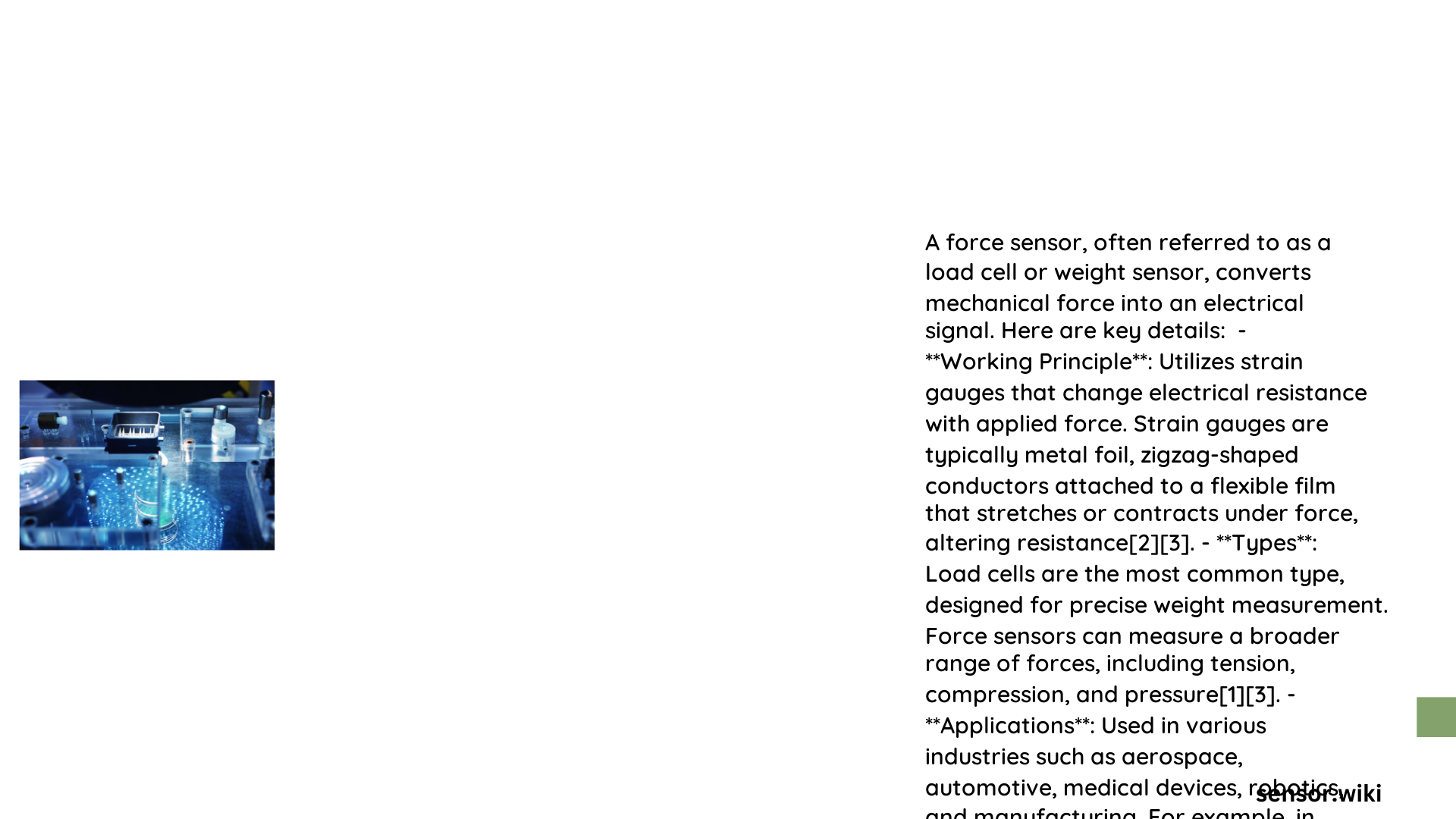Force sensor weight represents a critical technological parameter enabling precise measurement of mechanical forces across diverse industrial, scientific, and research environments. These sophisticated devices translate mechanical force into electrical signals, providing engineers and researchers with accurate quantitative data about weight, tension, compression, and mechanical interactions. Understanding their technical specifications, calibration methods, and application ranges is essential for optimal performance and reliability.
What Are Force Sensors and Their Weight Measurement Capabilities?
Force sensors are specialized transducers designed to convert mechanical force into measurable electrical signals. These devices come in various configurations, each tailored to specific weight and force measurement requirements.
Key Characteristics of Force Sensor Weight
| Sensor Model | Weight Range | Accuracy | Resolution |
|---|---|---|---|
| Mitsubishi Electric 4F-FS002H | 200-1000 N | ±0.3% | 0.3 N |
| Tekscan FlexiForce A401 | 0-111 N | ±3% | Varies |
| Mark-10 Series R01 | 250 N – 50 kN | ±0.15% | Dependent on model |
How Do Force Sensors Measure Weight?

Force sensors utilize various technological principles to measure weight:
- Strain Gauge Technology
- Converts mechanical deformation into electrical resistance
- Provides high precision measurements
-
Suitable for static and dynamic force detection
-
Piezoelectric Sensors
- Generate electrical charge proportional to applied force
- Excellent for dynamic weight measurements
-
High-frequency response capabilities
-
Capacitive Force Sensors
- Measure weight through changes in capacitance
- Extremely sensitive to minute force variations
- Low power consumption
What Factors Influence Force Sensor Weight Accuracy?
Several critical factors impact force sensor weight measurement precision:
- Environmental Temperature
- Mechanical Mounting Conditions
- Calibration Frequency
- Sensor Material Characteristics
- Electrical Interference
Where Are Force Sensors with Weight Measurement Used?
Force sensor weight technologies find applications across multiple domains:
Industrial Robotics
- Precision assembly processes
- Welding force monitoring
- Material handling optimization
Research and Scientific Applications
- Biomechanical studies
- Material stress testing
- Friction coefficient measurements
Medical and Healthcare
- Prosthetic limb force feedback
- Rehabilitation equipment monitoring
- Surgical tool force control
What Are Typical Calibration Procedures?
Calibration ensures force sensor weight accuracy through:
- Initial Factory Calibration
- Periodic Recalibration
- NIST-Traceable Standards
- Precision Force Applicator Usage
Cost Considerations for Force Sensor Weight Technologies
| Sensor Category | Price Range | Maintenance Cost |
|---|---|---|
| Research Grade | $500-$2000 | Moderate |
| Industrial Grade | $1000-$5000 | High |
| Educational Models | $100-$500 | Low |
Best Practices for Force Sensor Weight Selection
- Verify Measurement Range
- Consider Environmental Conditions
- Assess Accuracy Requirements
- Evaluate Long-Term Reliability
- Check Compatibility with Existing Systems
Emerging Trends in Force Sensor Weight Technology
- Miniaturization of sensors
- Enhanced wireless connectivity
- Improved temperature compensation
- Integration with IoT platforms
- Advanced machine learning algorithms for data interpretation
Conclusion
Force sensor weight technologies continue evolving, offering increasingly precise and versatile measurement capabilities across numerous industries and research domains.
